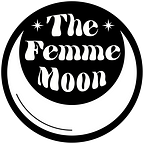Fire, Walk With Me
The Aries Full Moon brings passion and/or volatility to the forefront, depending on which way your scale tips.
As the first sign of the Zodiac, Aries is considered to be an origin story of sorts, the discovery of the spark which alights all. Aries energy relates to its ruler Mars, the Red Planet, and as Cardinal Fire stokes root chakra themes of safety, inventive creativity, the physical self, movement, motivation, drive and independence.
The Aries Full Moon will arrive Sunday October 9th around 5PM EST, just a day after Pluto goes direct, and can present clarity about an action needed or conjure a chaos of lust and lament in the dizzying crisp of Autumnal pleasures. In positive tomes, Aries is confident, but in detriment, Aries always unleashes one agreed-upon theme: Anger. And Anger not dealt with can find itself doomed to live in a realm of resentment, carrying a perpetual pursuit of protection, yet when processed can harbor a wisdom that resonates with compassion, even when unwilling to compromise.
Aries’ color is Red, a shade of much interpretation in art, psychology and even marketing due to its powerful potency. A favorite use of this color in pop culture is The Red Room from Twin Peaks. Abundant in analysis, its most simplistic form is the concentrated symbolism of its color, for which it is named.
“It’s always important to note an overabundance of a certain color in a dream. Red is the color of anger, inner passion and, yes, blood. But adding the red curtains to the mix further defines its dream meaning. The curtains don’t only hide views of the outside to those inside. More importantly, they prevent others from seeing in. If, as stated above, the room represents Cooper’s inner self and the red represents his anger or passion, a red room with curtains symbolizes his inner anger and/or passion that he doesn’t want others to see.”
From The Wrap by Rosemary Rossi
TW: Discussions about sexual assault, incest, violence. Spoiler alert for those who have not seen the series.
David Lynch’s fervor for duality, especially that of Good and Evil, is magnified in The Return, especially between the Coopers. Played complexly through Bob and his “possessions” in the original series, abuse by men in Leland’s bloodline, particularly his hidden experiences with sexual assault and incest in childhood, is implied to have led to the very same horrors against his daughter. How Bob “takes a host” through these familial entities is debatable, but if any singular message is clear, it would be that of intergenerational abuse and the curse it has on families and communities. In the end, Laura Palmer’s self-destruction and willingness to perish relates to the burden on women to end ancestral trauma, a release for both Leland and Laura, though ultimately leading to both of their deaths.
The Anger that stems from experiencing abuse, especially in family ties or early romantic relationships, can temporarily define us, as they do Laura. As melodramatic as Lynch’s TV work has been, one of the key reasons we are drawn to Laura’s story is because she, as a victim, exemplified how coping with secrets leads to addiction, self-harm, risky behavior, and sometimes cruelty to others. An avoided topic but one worthy of examination, Laura’s cries for help, laughing it off the next day, is the very complexity we deal with in our friend and family groups and yet rarely speak on. The masculine victim is represented through outward violence, tethering a heavy theme of long-term behavior in social structures. As we all know, sometimes those who have been abused become abusers, to others or to themselves.
Acutely aware of the ways in which our private relationships with abuse have been triggered daily through the news FOR YEARS NOW, the topic has come to the surface more than ever before. We are currently walking “in the Darkness of the Future-Past”, unsure of where history may repeat, unable to take a breather from the perpetuating suffering brought forth in our everyday sphere. There has been an intense rise in violence, especially towards marginalized people, since the pandemic began. Trump’s America has given fuel to toxic masculinity and white fragility as cultural warfare.
Victimization as an identity is not a simplistic subject. Though we are never to blame for any abuse we have experienced, we are responsible for our Healing. Without denying the reality of trauma, this Aries Full Moon may light the ways in which resentment does not serve us, yet instead can be like swallowing a pill and hoping for the other party to die. In grave timing, we gather wood to build a scathing bright fire to burn through our self-doubt and free us (as much as possible) from the struggles we have cycled through, without delusion or denial, moving forward to create a better path, knowing we deserve love and healing. No easy task, but advocating for more mental health resources as opposed to punishment is vital for true change in the greater whole.
Sometimes, reactionary behavior speaks more heavily of what we suffer from the past or how we form judgment as protection, than the actual situation that stands before us. Primal projections informed by insecurity deserve a chance to be deconstructed, as long as harsh truths can met with accountability. As a time of pause rather than planning, learning to be soft is just as strong as the perceived picture of destruction and death that fire can bring. Dealing with the Demons inside of us is a battle of the heart. So we do not become what has hurt us in the Past, eaten alive with Anger, we must wade through the negative self-beliefs that only serve to sever us from the Joy of true human connection and above all, connection to ourselves.
Our October Patreon features a Laura Palmer homage in the AnarchAngel zine. Image above by Cait Lamas. Order here.
